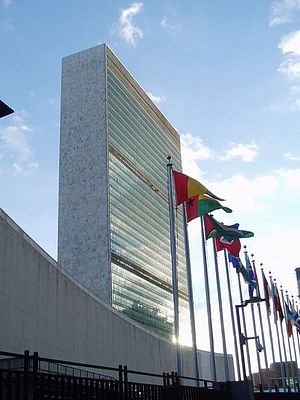U.S.-Iran relations have come a long way since the days of Mahmoud Ahmadinejad. The new government under Hassan Rouhani demonstrated that it was willing to operate on different terms when it managed to close an interim deal with the P5+1 group of states, which includes the United States. Now, however, the two countries are embroiled in a diplomatic spat over Iran’s ambassadorial nomination to its UN Permanent Mission in New York City. Iran has nominateed Hamid Aboutalebi to the post, a man who was part of the student group that took over the American Embassy in Tehran in 1979, and held American diplomats hostage for 444 days. The event effectively ended all diplomatic contact between Iran and the United States for over 30 years.
In response to the Iranian nomination, both the White House and the U.S. Senate have lodged their protests. The U.S. Senate voted unanimously on a motion to bar Aboutalebi from entering the United States, and the House of Representatives is largely expected to approve a similar measure as well. White House spokesman Jay Carney told reporters that the U.S. has “informed the government of Iran that this potential selection is not viable.” The Senate vote represented an unusual bipartisan pairing between Democrat Charles E. Schumer of New York and Tea Party Republican Ted Cruz from Texas — the latter went as far as to refer to Aboutalebi as an “acknowledged terrorist.” Furthermore, U.S. State Department spokesperson Marie Harf noted that the nomination was “extremely troubling,” but did not call for barring Aboutalebi from the United States.
In his defense, Aboutalebi noted that his sole role in the takeover of the U.S. Embassy in 1979 was to serve as a translator and negotiator. “Once or twice that they needed translation to English or French to communicate with the outside world, I did it, including when they released women and black staff, which happened on humanitarian grounds,” he said, according to The Guardian.
This episode between the United States and Iran comes as delegates from the P5+1 and Iran meet in Vienna to discuss the fate of the IR-40 heavy water reactor at Arak that has been a major point of contention in the negotiations over Iran’s nuclear program. The issue of the Arak reactor will need to be resolved before a permanent deal can be found.
The intensifying dispute over Aboutalebi’s nomination will likely set back what little fragile progress was being made bilaterally between the United States and Iran. Additionally, the episode will test the United Nation’s tolerance for the United States denying visas to representatives chosen by UN member states — a highly unusual practice for the United States.
Given that the United Nations maintains its headquarters in New York City, the United States handles immigration controls for all diplomats at the UN. In the case of representatives of nations with whom the United States has no diplomatic relations or poor diplomatic relations, the U.S. requires that they remain within a 25-mile radius of Columbus Circle in Manhattan while in the United States. This applies to Iranian diplomats, as well as diplomats from North Korea and a few other states.

































